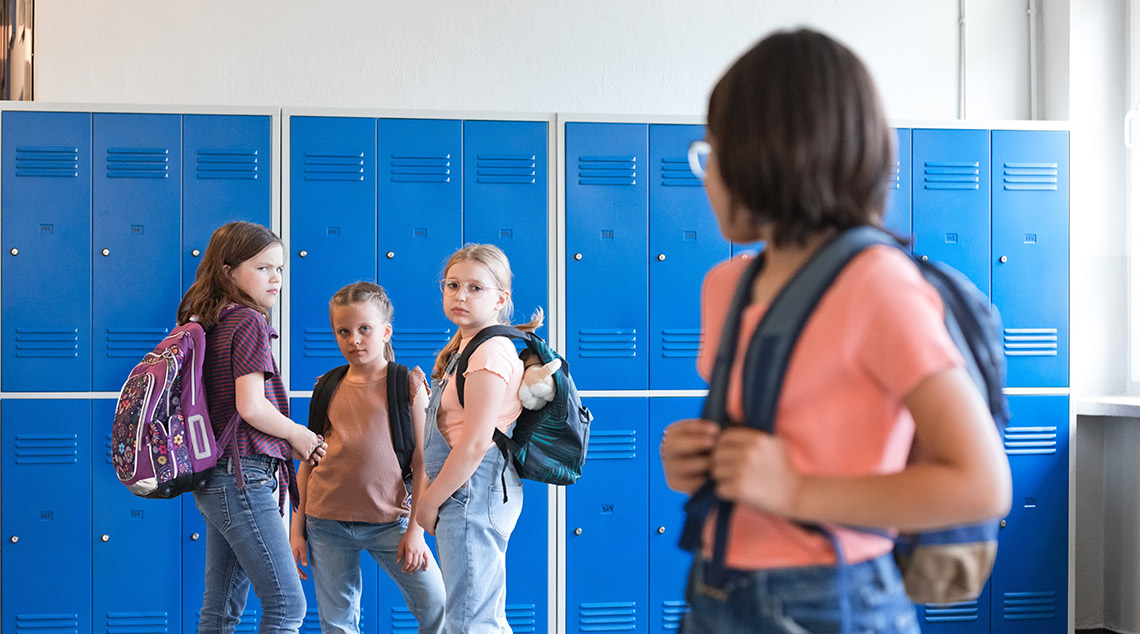5 ways to help your child handle friendship friction
Kids’ friendships aren’t always plain sailing. Here’s how to help your child navigate friendship dramas and build social skills for life.
As a parent, it can be difficult to see your kids struggle with friendship dramas.
Nobody wants to witness their child not being invited to a party or in tears because their best friend has been mean to them – again!
But teacher, wellbeing expert and URSTRONG Schools director Tyson Greenwood urges parents not to panic.
“About 85 per cent of friendship conflicts in schools are over normal, low-level misunderstandings or disagreements versus intentionally ‘mean on purpose’ actions,” Tyson says.
Why are friendships important for kids?
Tyson says there are multiple benefits to having strong friendships in childhood.
“Our job as parents and educators is to recognise that friendships do make the biggest difference to a student’s positive wellbeing – socially and emotionally,” he says.
“Kids are also better learners if they’re more connected, so we want to empower them with healthy friendship and relationship skills they can use for life, starting from when they’re in primary school.”
The Child to Adult Transition study in Australia points to the middle years as a time where young people need strong social support systems.
A 2022 study in the Netherlands notes forming and maintaining friendships is one of the most important developmental tasks in adolescence, and high-quality friendships are linked to positive mental health, and protect against being victimised and internalising behaviours.
Quirky Kid Clinic child psychologist Amber Burden-Hill describes friendships in the transition period of primary to secondary school as “vital”.
“They provide emotional and social support, a sense of belonging and a buffer against the uncertainties during this critical period of change,” Amber says.
She adds it’s also normal for friendship circles to change during this time – but that can be positive.
“A shift in social dynamics can be an opportunity for greater personal growth,” Amber notes.
5 ways to help your child with friendship dramas
Tyson says when hurt feelings arise between children – which they inevitably will – don’t ignore them and definitely don’t tell your kids to suck it up or “play with someone else”.
Otherwise, they could start to block their feelings; instead, show them skills to set them up for life.
Here are our experts’ suggestions to help your child navigate any friendship issues:
1. Be a friendship coach to your child
“Upskill yourself with conflict resolution skills and help your child practise the conversation they may have with their friend, including why they felt hurt and what to do next time,” Tyson advises.
2. Teach your child that mistakes are no big deal
When kids understand that anyone can make a mistake, they’ll learn not to blow conflict out of proportion, Tyson says.
3. Encourage empathy
“Help your child see their friend’s perspective to promote empathy,” Amber says.
“Discussing how others might feel can promote more understanding and tolerance to resolve conflict in a friendlier way.”
4. Talk about what a good friendship looks like
Discuss with your child the ingredients for a good friendship, including trust, respect and honesty, and nominate the factors that are deal-breakers, Tyson recommends.
5. Help your child understand friendships can be fluid
“Let your children know friendship circles are naturally going to evolve as they transition to high school,” Amber says.
“These changes can encourage your child to stand on their own two feet and find like-minded friends.”
More on parenting:
- Why kids need to be allowed to make their own choices
- Should you be friends with your kids?
- 7 kids’ health questions you might be too embarrassed to ask
- Playing favourites with your kids? How to distribute the love more equally
Written by Lin Fong.






